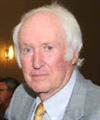
Last week Professor Emeritus Bob Lawrence shared his insights on the recent national election. Bob, a self-described Democrat, started with a disclaimer regarding his possible speaker bias. The results of the election may be disturbing based on your party affiliation but should be disturbing to all Americans as they reveal the deep polarization currently in our country. A recent report states that 78% of Republicans believe Biden “stole” the election and many believe in (sometimes absurd) conspiracy theories to support this claim. This level of distrust could be a factor in Biden’s ability to govern. CLICK HERE to view Dr. Lawrence's presentation.
Polarization is not new. Bob reports he is old enough to remember the returns in the 1940 FDR vs Wilke election and how his dad awaited the rural votes that did not swing the election for Wilke. Although FDR was viewed by some as a socialist or communist, the results of the election in that year were accepted by the electorate.
One factor that may explain the difference we see in today’s world is social media. Current polarization was illustrated by voting result maps shown of Kansas, Wyoming and Colorado. Blue areas cluster around urban centers, their suburbs and university towns.
Bob reminded us of some of the “socialist” structure in our country including, utilities, dam building, and water for farmers.
So, what messages worked for the candidates? Trump used law and order issues - rioting in cities that might extend to suburbs, calls for defunding the police and the fear of socialism. Appeals to Evangelicals and Catholics centered around his past and potential future conservative appointments in the Judiciary.
What worked for Biden? – the fear that Obamacare would be dismantled, the hope for better leadership in the war on COVID, support for BLM, climate change (appeals to younger voters) and the negative characterization of Trump.
What will be the major challenges for Biden? - the Senate may stay Republican, Democrats lost seats in the House and there are more conservative judges. Nonetheless, the US Presidency is a very powerful position. Particular areas of power include the presidents’ role as Commander-in Chief of the Armed Forces, as well as foreign affairs including diplomacy, war and peace and the opportunity to deal with foreign leaders through executive agreements.
On the domestic front, executive orders have been used extensively in recent years and Biden has already expressed his plans to use them also. The Antiquities Act allows the president to designate national monuments.
The future of the parties will be influenced by potential splits - in the GOP by traditional Republicans vs Trump Republicans; in the Democratic party between centrists and liberals.
A special “shout out” to all those who skillfully did their patriotic duty in this election – from poll observers to secretaries of the states. Thanksgiving followed on Thursday-we can be thankful that “the system worked” and, so far, “there are no tanks in the streets”.